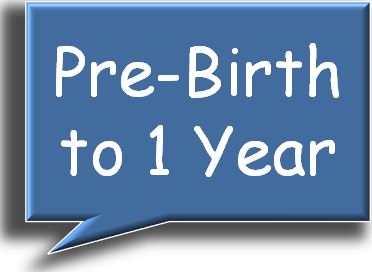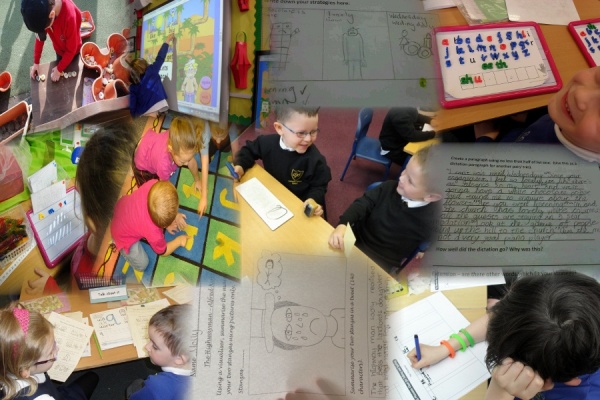 Have fun from day one! – Tips on how best to Play, Talk and Read with your wee one, and free things to do around Scotland.
Have fun from day one! – Tips on how best to Play, Talk and Read with your wee one, and free things to do around Scotland.
Please visit the following website for more information:
 This document ‘Practical Solutions for Early Intervention’ can be found in all Falkirk Council early level establishments.
This document ‘Practical Solutions for Early Intervention’ can be found in all Falkirk Council early level establishments.
It contains practical examples of learning experiences aimed at talking and listening, reading and writing.
This is a valuable document and embraces the aims of Falkirk Council’s Literacy Strategy.
The scanned document can be accessed from here: Practical Solutions for Early Intervention.
For more information, please contact the Curriculum Support Team at Camelon Education Centre.
 Literacy and numeracy are fundamental for children to function effectively and to contribute to society.
Literacy and numeracy are fundamental for children to function effectively and to contribute to society.
This link will take you to advice from Education Scotland relating to literacy and numeracy. It contains short videos and guidance too.
 This animation is to assist parents and carers to support their child’s learning and development at home, based on Education Scotland’s publication “Every day is a learning day”.
This animation is to assist parents and carers to support their child’s learning and development at home, based on Education Scotland’s publication “Every day is a learning day”.
It is part of one of the Early Years Collaborative initiatives in Falkirk Council.
[kml_flashembed movie="http://www.youtube.com/v/QWeYMNxNUpc" width="425" height="344" allowfullscreen="true" fvars="fs=1" /]
Mary Jalland at Westquarter Primary School attended a school based CAT session on reading where Sharon Wallace, Curriculum Support Officer for Falkirk Council, talked about using Blooms fans with pupils to develop deeper understanding of 'texts'.
Mary went back to class and tried this out using 'The Gruffalo' as a text with some stunning results.
[kml_flashembed movie="http://www.youtube.com/v/i9nJgX9SYlY" width="425" height="344" allowfullscreen="true" fvars="fs=1" /]
 This group is run jointly by Pre-School Home Visiting Education Service and Speech and Language Therapy (Pre-School ASN). Runs weekly during term time at Laurieston Centre, James Street, Laurieston. Children attend with parent/carer. Basic communication skills and Makaton signing are encouraged using a structured programme of songs, rhymes and activities. Free play at the start allows time for observation of skills, peer interaction and discussion with parents.
This group is run jointly by Pre-School Home Visiting Education Service and Speech and Language Therapy (Pre-School ASN). Runs weekly during term time at Laurieston Centre, James Street, Laurieston. Children attend with parent/carer. Basic communication skills and Makaton signing are encouraged using a structured programme of songs, rhymes and activities. Free play at the start allows time for observation of skills, peer interaction and discussion with parents.
Further information can be accessed via:
http://www.dseinternational.org/en-gb/
http://www.makaton.org/aboutMakaton/
http://www.bbc.co.uk/cbeebies/grownups/article/makaton
Janet Hutton – Pre-school Home Visiting Teacher
Tel: 01324 501983
Heather Lynch – Pre-School ASN Speech and Language Therapist
Tel: 01324 623485
 This group is run by Pre-School Home Visiting Education Service. Group is for babies who have Additional Support Needs and their parents/carers. Meets monthly on first Monday of the month in Camelon Education Centre Community Wing.
This group is run by Pre-School Home Visiting Education Service. Group is for babies who have Additional Support Needs and their parents/carers. Meets monthly on first Monday of the month in Camelon Education Centre Community Wing.
Aims of this group are:
For further information on this, please contact:
Pre-school Home Visiting Teachers – Maureen, Janet, Alison and Nancy.
Tel: 01324 501664, 501983, 503713, 501687
 Literacy skills are embedded within all the curriculum areas. Teachers and learners will focus on developing the skills detailed in the Experiences and Outcomes. Key aspects of learning within literacy and English relate to the way learners:
Literacy skills are embedded within all the curriculum areas. Teachers and learners will focus on developing the skills detailed in the Experiences and Outcomes. Key aspects of learning within literacy and English relate to the way learners:
Falkirk’s Curriculum Support Team will be delivering a range of professional learning opportunities this year based around these significant aspects of learning in literacy.
These opportunities include a range of Active Literacy courses based around active strategies and methodologies for spelling and phonics, reading and writing, sharing good practice networks, higher order reading skills, effective questioning in literacy and using a range of media-linked genre to develop literacy skills.
Mary Jalland, Class Teacher at Westquarter Primary School, Falkirk, has created two Active Literacy blogs. Mary’s blogs are a great way of sharing effective teaching and learning in literacy, as well as sharing resources relating to the P1 and P2 Active Literacy programme. Mary has included links through to pupils demonstrating the Active Literacy strategies and methodologies, as well as a great explanation of Active Learning in their class.
Please visit: http://mrsjallandphonics.primaryblogger.co.uk/atspin/
How can I support my child with their active literacy homework?
What is a phoneme?
What are Elkonin boxes?
What is diacritical marking?
What is Reciprocal Teaching?
Which spelling strategies are taught at school and how I can support my child with this?